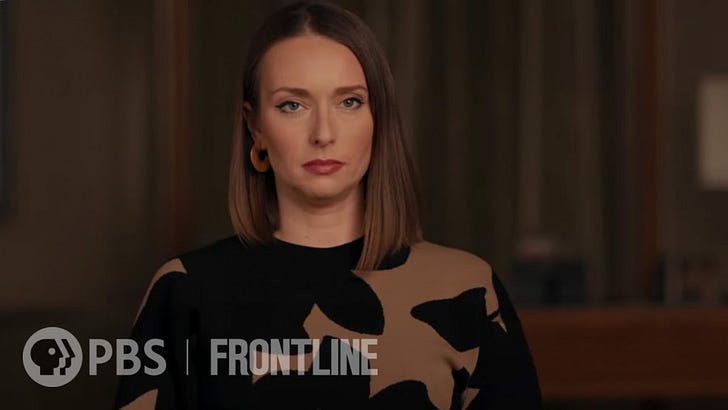Julia Ioffe, who can scarcely be accused of being any fan of Vladimir Putin or the current Russian foreign policy, suggests Russian leaders weren't necessarily being delusional when they were worrying about Washingon-supported regime change attempts as the End of History proceded after 1989:
To some conservative Russian thinkers, many of whom came to influence Vladimir Putin in his third turn at the presidency, the very idea of Russia as a democracy was itself a kind of defeat. It was an imposition of a foreign system of government ill-suited to Russia’s traditions and historical insistence on greatness, unity, and the subservience of the individual to a strong, centralized state. They, and Putin, resented Westernization, especially in its geopolitical manifestations, like NATO’s 1999 bombing of Yugoslavia in spite of Moscow’s protestations.
Then, in the 2000s, George W. Bush’s program of regime change and democracy promotion supported democratic uprisings in the former Soviet republics of Georgia, Ukraine, and Kyrgyzstan. This terrified Putin, who feared Washington would support something similar in Moscow. He responded by actively marginalizing his opposition, creating a militant pro-government youth movement, and castrating what was left of the independent press at home. Then came the toppling of Saddam Hussein, Hosni Mubarak, Muammar al-Qaddafi, and, quite nearly, Bashar al-Assad — all in the name of Western democracy. And it came against the backdrop of protests under the Kremlin walls of Westernized, urban, white-collar Muscovites demanding a more transparent, accountable form of government. They stood in the winter cold of December 2011 and explicitly asked for a European-style government.1
Ioffe does indulge in some hyperbole, e.g., writing that Putin succeeded in “thoroughly Russifying the U.S. presidential election” of 2016.
But she’s making a valid historical point consistent with what many other historians and analysts have said about Putin’s fears of regime change in light of incidents like the ones she names there.
It has become a somewhat odd standard item in New Cold Warriors’ commentary that NATO expansion had nothing whatsoever to do with Russia’s invasion(s) of Ukraine in 2014 and 2022. The fact that Russia was reacting in some to external events does not justify their invasion of Ukraine. It doesn’t even mean it was a sensible decision from Russia’s point of view in coldly practical calculations.
Branko Marcetic relates some recent cases of prominent figures stating the fairly obvious point that Russia was reacting in part to concerns about NATO expansion. Since Russia has been publicly expressing concern over NATO expansion for decades -and especially since 1991 about the prospect of Ukraine joining - it’s actually an odd talking point, given how prominent a feature it has been in the US-Russia relationshiop for decades:
From the start of the Russian invasion of Ukraine, we’ve been told that the issue of NATO expansion is irrelevant to the war, and that anyone bringing it up is, at best, unwittingly parroting Kremlin propaganda, at worst, apologizing for or justifying the war.
So it was curious to see NATO Secretary General Jens Stoltenberg earlier this month say explicitly that Russian president Vladimir Putin launched his criminal war as a reaction to the possibility of NATO expanding into Ukraine, and the alliance’s refusal to swear it off — not once or twice, but three separate times.
“President Putin declared in the autumn of 2021, and actually sent a draft treaty that they wanted NATO to sign, to promise no more NATO enlargement,” Stoltenberg told a joint committee meeting of the European Parliament on September 7. “That was what he sent us. And [that] was a pre-condition for not invade [sic] Ukraine. Of course we didn't sign that.”
“He went to war to prevent NATO, more NATO, close to his borders. He has got the exact opposite,” Stoltenberg reiterated, referring to the accession of Sweden and Finland into the alliance in response to Putin’s invasion. Their entry, he later insisted, “demonstrates that when President Putin invaded a European country to prevent more NATO, he's getting the exact opposite.”2 [my emphasis]
In this video from January3, Ioffe talks about Putin’s relationship with US Presidents:
Ioffe, Julia (2016): The End of the End of the Cold War. Foreign Policy 12/21/2016. <https://foreignpolicy.com/2016/12/21/the-end-of-the-end-of-the-cold-war-russia-putin-trump-cyberattacks/> (Accessed: 2016-25-12).
Branko Marcetic (2023): When officials say the quiet part about Russia and NATO out loud. Responsible Statecraft 09/19/2023. <https://responsiblestatecraft.org/russia-ukraine-nato-expansion/> (Accessed: 2023-23-09).
Putin and the Presidents: Julia Ioffe (interview). PBS Frontline YouTube channel 01/31/2023. (Accessed: 2023-23-09).


